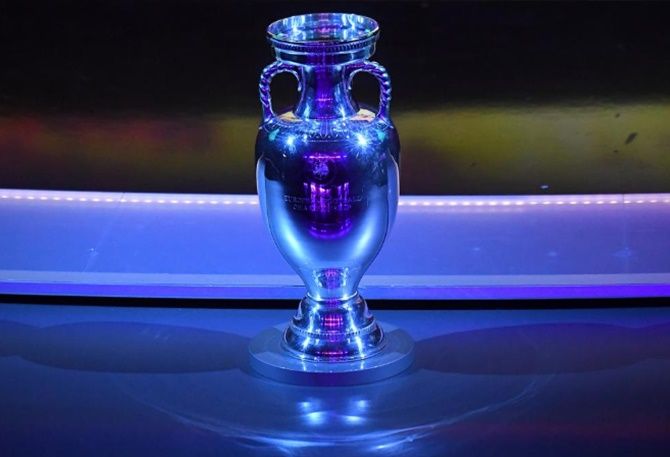Five things to watch for in opening two rounds of the Euro 2020 qualifying competition which will be played between Thursday and Tuesday:
NEW FORMAT

There are two different ways to qualify for Euro 2020: either through the usual qualifying system which starts on Thursday or via the new Nations League competition which began in September.
The 55 teams have been divided into 10 groups of five or six, and the top two teams in each qualify directly.
The remaining four finalists will be the top team in each division of the Nations League which has not already booked their places through the conventional qualifying competition.
As the Euro 2020 matches will be hosted by 12 countries, there will be no automatic qualification for any of the host nations.
RONALDO BACK FOR PORTUGAL
Cristiano Ronaldo has been included by defending champions Portugal for the first time since the World Cup for their matches at home to Ukraine and Serbia.
The 34-year-old sat out the Nations League in the autumn by 'mutual consent' with coach Fernando Santos and Portugal showed they could manage without him, sailing through four games against Italy and Poland unbeaten.
However, Santos, rebuilding the team after their round of 16 exit in Russia, waved away suggestions that Portugal no longer need their most capped player and all time leading scorer.
“Any team would be stronger with Ronaldo,” he said. “We have a great responsibility and our aim is to defend our title. We have to maintain that united spirit.”
NEW START FOR GERMANY
Germany will be looking to end a run of five competitive matches without a win when they open their campaign away to bitter rivals the Netherlands on Sunday.
After crashing out of the 2018 World Cup in the first round with a defeat to South Korea in their final group game, Joachim Loew’s side drew two and lost two matches as they finished bottom of their Nations League group and were relegated.
Loew responded with drastic measures, saying he would no longer call up stalwarts Jerome Boateng, Mats Hummels and Thomas Mueller because he needed to look to the future.
With close to 250 internationals between them, Hummels (70 caps), Mueller (100) and Boateng (74) were part of the same generation which won the 2014 World Cup, thrashing hosts Brazil 7-1 along the way.
“The more I think about it, the more the way it was done makes me angry,” said Mueller in reaction to his exclusion from the squad. “It’s mostly the character of the decision that I don’t understand. Mats, Jerome and I are still able to play at the highest level.”
MANCINI STICKS WITH YOUTH
Apart from Germany, no team is under more pressure than Italy after they failed to even qualify for Russia and then finished behind Portugal in the Nations League.
Roberto Mancini’s team face a potentially tricky group which includes Bosnia and Greece although they start with relatively straightforward matches at home to Finland and Liechtenstein.
Mancini has stuck by his decision to prioritise youth, leaving out experienced players such as maverick forward Mario Balotelli and Torino striker Andrea Belotti while including youngsters Nicolo Zaniolo and Moise Kean.
There is a lot of anticipation especially around Roma’s 19-year-old midfielder Zaniolo, who has made a huge impression this season.
“This could be when Zaniolo makes his debut,” said Mancini. “It’s important for young players to play a few games, that’s how they improve.”
CAN KOSOVO CONTINUE THEIR UNBEATEN RUN?
Kosovo will be aiming to extend their unbeaten run in competitive internationals to seven - a remarkable turnaround - when they host Bulgaria at the Fadil Vokrii stadium on Monday.
After being accepted as members of UEFA and FIFA in 2016, Kosovo took a point off Finland in their first-ever competitive match, a World Cup qualifier, but then lost their remaining nine games in the campaign.
However, it was a different story in the Nations League as the side under Swiss coach Bernard Challendes topped their group in League 4, winning four games and drawing two.













 © 2025
© 2025